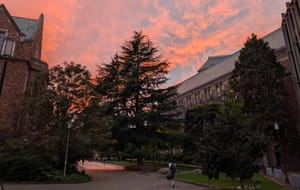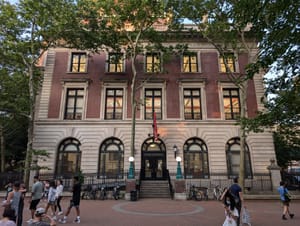A while ago I spent some time looking through the institution profiles collected by ARL. One of the themes I noticed was the ‘service turn’, where libraries were looking at the quality of their services in support of research and learning as important markers of distinction, more important, maybe, than the collections which have loomed so large in historic ARL assessment of libraries.
Consider this from the University of Illinois at Urbana Champaign for example …
As part of a broader re-alignment of library services ongoing since 2007 to address transformational changes in the composition of library collections, the information-use patterns of library users, and the broader environments of scholarly communication and American higher education, the Library has committed to supporting a greater variety of service models – including central services, departmental library services, embedded librarian service programs, and virtual service programs – as a key component of a vision of the future in which leading research libraries are distinguished as much by the scope and quality of their service programs as by their collections. [.doc]
Or this from The University of Minnesota …
In alignment with the University’s strategic positioning, the University Libraries have re-conceived goals, shifting from a collection-centric focus to one that is engagement-based. [PDF]
Coincidentally, at much the same time, a colleague pointed me to a brief article written by Scott Walter of UIUC, “Distinctive Signifiers of Excellence”: Library Services and the Future of the Academic Library [PDF].
Here is a sample ..
There can be no question that a great library must provide access to great content, but do the seismic changes afoot in the ways in which access may be gained to content (including that found in unique artifacts) require us to ask new questions? For example, when access to content is no longer scarce, what are the services that will stand as the “primary measures of quality” and “distinctive signifiers of excellence” in the academic library? What effect might a broader understanding of distinctive services have on our appreciation for a range of libraries beyond those with the largest collections?
He provides some examples of ‘distinctive services’, including, for example, Columbia’s Copyright Advisory Office and the Library Assessment Program at the University of Washington.
He goes on to argue that the development of distinctive services will not be the preserve of larger libraries …
… while the development of a distinctive library service does require vision, strategic planning, and professional expertise, it does not require access to a local collection numbering in the millions. Defining distinctive services with the clarity with which we have defined distinctive collections allows us to acknowledge that the 21st century will be marked by different, but equally valid, definitions of excellence in academic libraries, and that the manner in which individual libraries demonstrate excellence will be distinctive to the service needs, and to the opportunities to address those needs, found on each campus.
It is to this article that I owe the phrase ‘service turn’ which I use as the title above.
Two things occur to me here. One is that is relates to a general move towards ‘customer relationship’ (or engagement, or research and learning support, or ..) and away from infrastructure management as the primary locus of library activity (I use these terms as used by John Hagel here). This is not to say that infrastructure is not managed, but that it may increasingly be shared or outsourced. One interesting example of this trend is library space, which is being reshaped around library users rather than around collections. Another is that it will be interesting to see how such new services do or don’t converge around models which can be provided collaboratively or by third parties. In other words, is local responsiveness a part of their distinctiveness?



